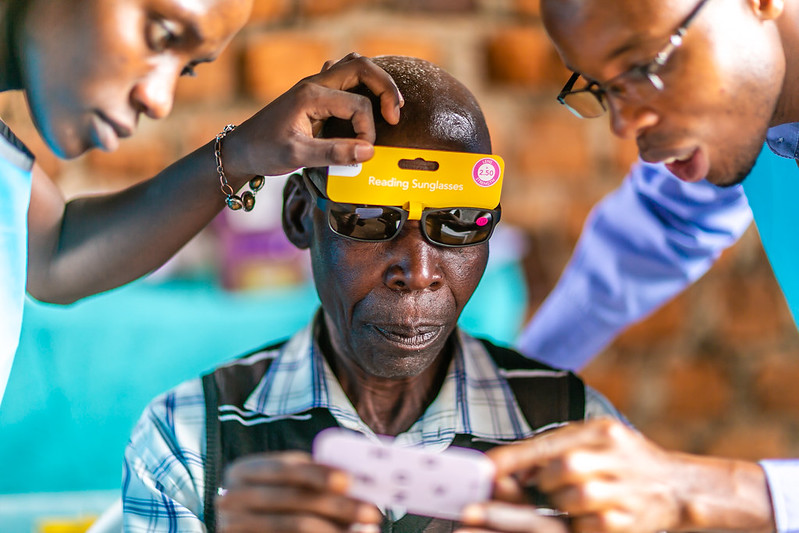The International Centre for Eye Health (ICEH) at the London School of Hygiene & Tropical Medicine are excited to announce a new grant from Givewell and the Livelihood Impact Fund (LIF), which will fund new work on refractive error and health economics.
Globally, an estimated 800 million people need reading glasses but do not have them. Reading glasses are used to address near-vision impairment (presbyopia), and without them people can often struggle to work, care for their families and enjoy life.
This new grant, of $4.8m ($1m contributed by LIF), will be used to assess the impact of providing eyeglasses for people with near-vision impairments in India and Kenya. The study, a randomised controlled trial, will test the effect on income, household consumption and expenditure, and vision-related quality of life for adults 35-65, before and after being provided with glasses.
The trial will also look at other economic and quality-of-life metrics for participants, such as self-reported productivity and general health-related quality of life.
Our partners for the project are Dr Shroff’s Charity Eye Hospital in India, and Kenya Medical Research Institute in Kenya, who are both long-term collaborators with ICEH.
The trial started in 2024 and will run for five years. It’s hoped that the results will provide evidence that supplying people with near-vision spectacles is a cost-effective mechanism for development, improving lives and livelihoods for individuals, families and communities.
Long term, this could potentially lead to more funding for the provision of reading glasses, using eye health to unlock progress in low and middle-income countries globally.
GiveWell is a nonprofit dedicated to finding and analysing giving opportunities and publishing the full details of their analysis to help donors decide where to give.
The Livelihood Impact Fund seeks to increase people’s ability to support themselves and their families. They target interventions that have the potential to deliver 5x or more present value of increased future earnings per dollar spent.

